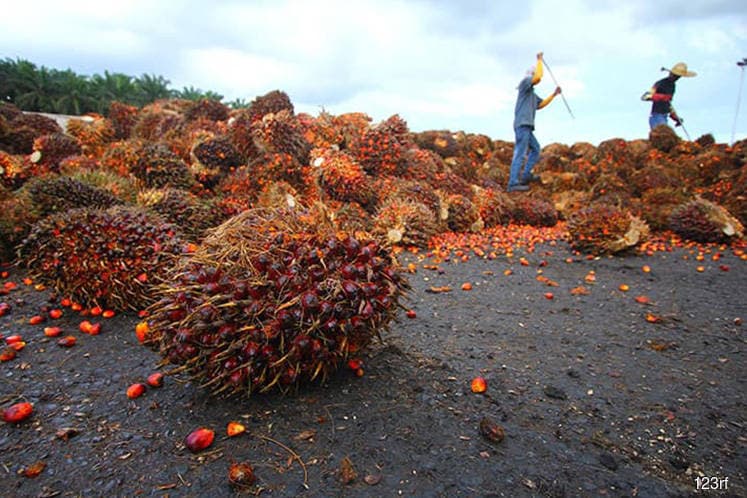
This article first appeared in The Edge Financial Daily on January 10, 2018
KUALA LUMPUR: Malaysia’s palm oil export earnings are poised to hit RM80 billion this year, according to the plantation industries and commodities ministry.
This would suggest an improvement from the RM75 billion worth of exports of palm oil and palm products estimated for 2017, which would account for nearly 7% of Malaysia’s total exports.
Production, meanwhile, is expected to inch up to 20 million tonnes in 2018, from at least 19.5 million tonnes estimated for last year.
As at November 2017, total exports of palm oil and palm products stood at 22.4 million tonnes, valued at RM71.5 billion, translating into a 1.3% increase in volume and a 16.2% rise in terms of value year-on-year (y-o-y).
“We hope that by waiving the export duty for palm oil, we can reduce the stock level and increase exports of palm oil,” said Plantation Industries and Commodities Minister Datuk Seri Mah Siew Keong on the sidelines of the annual Reach & Remind Friends of the Industry seminar held by the Malaysian Palm Oil Council (MPOC) here yesterday.
Malaysia has suspended export taxes on crude palm oil (CPO) for a three-month period starting from Jan 8 to boost prices and reduce high stockpiles currently measured at 2.6 million tonnes.
Mah also said the MPOC is working closely with smallholders in the industry to increase production, by assisting them via technology sharing and the provision of replanting grants and better quality seedlings.
However, analysts think the government is overly “ambitious” in its target to reduce stockpiles by over one million tonnes in a mere three months via the export duty freeze.
“We are not very optimistic that the removal of the export tax will help jump CPO prices,” Dr Sathia Varqa, owner and co-founder of independent online palm oil news provider, Palm Oil Analytics, told The Edge Financial Daily when met at the event.
While an estimated double-digit export — due to the seasonal factors of the Lunar New Year and Ramadhan — may keep palm oil prices firm at about RM2,800 in the first half of this year, Varqa expects it to turn bearish, averaging at RM2,500 per tonne, in the second half of the year. At the time of writing yesterday, palm oil was trading at RM2,597 per tonne.
Its senior analyst Sam Yen also warned of a surplus that comes with the recovery of production this year, due to the weak La Nina effect.
“They will have to find new markets to absorb the forecast 3% y-o-y production growth. European demand will fundamentally change, whether we like it to, or not,” explained Yen.
Yen said Malaysia should be more proactive in seeking new outlets to help reduce inventories, be it marketing to developing countries such as Pakistan, or other market segments such as biodiesel, or oleochemicals.
Meanwhile, commenting on the European Union (EU) parliament’s resolution on palm oil and deforestation, Mah said Malaysia can retaliate if the EU decides to ban palm oil from its biofuel mix.
Within the next two weeks, the EU council will vote on whether to exclude palm oil from its biofuel mix and renewable energy sources.
“If our product is discriminated [in the end], we can also institute the same thing, but we hope it wouldn’t come to that. The ministry of international trade and industry (Miti) is negotiating the free trade agreement with Europe, and palm oil will remain at the top of the agenda,” Mah added.
“The [EU] ban is not realistic. I am optimistic the shipments will go, or they (the EU) may not meet their needs,” said Varqa, adding that: “Malaysia would only need to be worried if the high anti-dumping duties on Indonesian biodiesel are removed.”